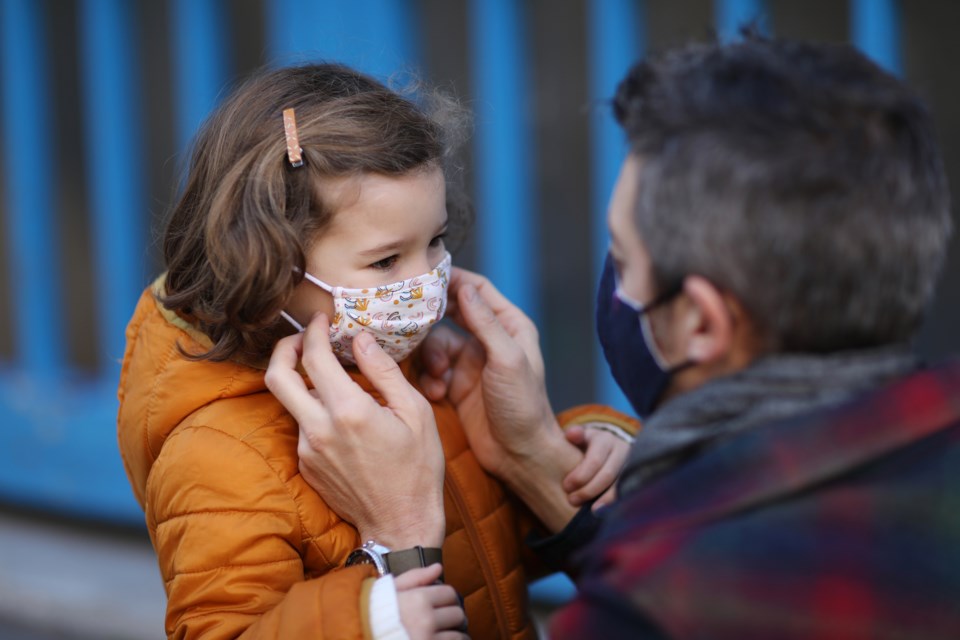Serious COVID-19 infections in B.C. have been on the decline since early November, and on December 8 hit new multi-month lows.
There are now 224 COVID-19 patients in B.C. hospitals, which is the fewest since September 3. Of those, 77 are sick enough to be in intensive care units (ICUs,) with that being the lowest count since August 25.
Another six COVID-19 deaths in B.C. in the past 24 hours raised the province's pandemic death toll to 2,369.
The 379 new infections in the past day raised the province's total number of known COVID-19 infections to 221,235. Of those, 215,884, or 97.6%, have recovered.
The 379 new cases detected in the past day include:
• 104 in Fraser Health;
• 64 in Vancouver Coastal Health;
• 94 in Interior Health;
• 49 in Northern Health;
• 65 in Island Health; and
• three people who normally reside outside B.C.
Active infections rose by 60, to 2,874, from what was a four-month low yesterday.
Those active cases include:
• 924 in Fraser Health;
• 497 in Vancouver Coastal Health;
• 580 in Interior Health;
• 276 in Northern Health; and
• 595 in Island Health; and
• two people who normally live outside B.C.
The B.C. government did not explain why all three newly detected COVID-19 cases in people who live outside the province are not included as being active cases.
The B.C. government usually considers COVID-19 patients to have recovered if they have gone 10 days following first feeling symptoms, as they are therefore deemed to no longer be infectious. Some patients, however, continue to have health problems for months after their recoveries.
Unvaccinated people continue to be the ones most spreading the disease.
Between November 30 and December 6, people not fully vaccinated accounted for 59% of new cases, and between November 23 and December 6, those individuals accounted for 67.5% of hospitalizations.
This is despite the vast majority of British Columbians being fully vaccinated.
B.C. government data show that 4,274,610 residents have had at least one dose of vaccine, while 4,091,486, or 95.7% of those are fully vaccinated with two doses.
Children as young as five years old started to get vaccinated on November 29, and as a result there has been a jump in the number of new people getting their first doses of vaccine. There were 6,998 people who got their first dose of vaccine in B.C. in the past day – the most in a single day since October. Another 2,877 received their second dose.
Victoria estimates that 85.8% of eligible British Columbians, older than five years, have had at least one vaccine shot, while 82.1% of that eligible group is fully vaccinated with two jabs.
The B.C. government last year estimated in that the province's total population is 5,147,712, so Glacier Media's calculation is that more than 83% of B.C.'s total population has had at least one dose of vaccine, and 79.5% of the province's total population has had two doses.
Booster shots in B.C. have started to be given to immunocompromised people, those older than 70 years who have gone six months after their second dose, as well as to healthcare workers and those who received two AstraZeneca doses of vaccine, and have gone six months since their second dose. Others older than 18 years are expected to be allowed, in stages, to get booster doses in 2022.
So far, 522,264 people in B.C. have received their booster dose, according to today's data. That is 17,284 more than yesterday. Most of the booster doses have so far gone to people older than 70 years old.
There were no new outbreaks at health-care facilities in the past day. That leaves the province with five such outbreaks. •



